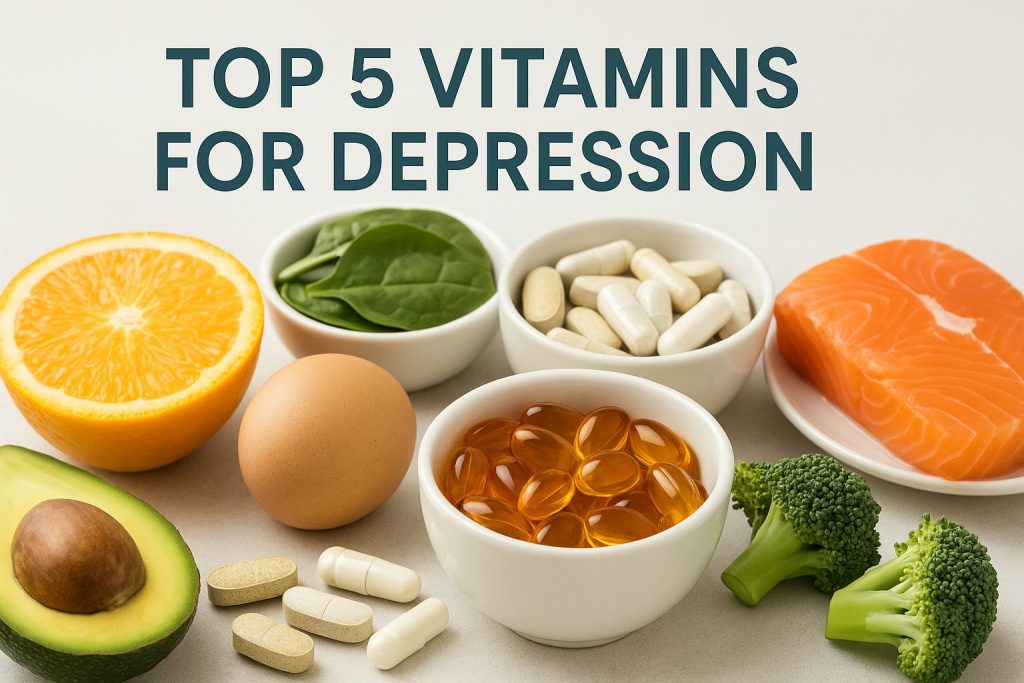Top 5 Vitamins for Depression: Nutritional Support for Mental Health

The Connection Between Nutrition and Mood
Depression is a complex mental health condition influenced by genetic, environmental, and biochemical factors. In recent years, growing scientific evidence has highlighted the important role that nutritional status—especially micronutrients—can play in mood regulation and brain function.
In 2025, more people turn to integrative approaches for mental health that include dietary changes and targeted supplementation alongside therapy and medication.
1. Vitamin D
Often referred to as the “sunshine vitamin,” vitamin D is essential for serotonin production and overall brain health. Low levels of vitamin D have been consistently linked with higher rates of depressive symptoms, especially in people who live in low-light climates or spend little time outdoors.
- Sources: sunlight, fatty fish, fortified foods
- Supplement tip: vitamin D3 form, often paired with K2 for better absorption
2. Vitamin B12
Vitamin B12 is vital for red blood cell formation, neurological health, and DNA synthesis. Deficiency is common in vegetarians, vegans, and older adults, and can lead to fatigue, brain fog, and mood disturbances.
- Sources: meat, eggs, dairy, fortified cereals
- Supplement tip: methylcobalamin is a bioactive and well-absorbed form
3. Vitamin B6 (Pyridoxine)
Vitamin B6 plays a critical role in the production of neurotransmitters such as serotonin, dopamine, and GABA. Inadequate B6 may contribute to mood swings, anxiety, and low energy.
- Sources: poultry, bananas, chickpeas, tuna, potatoes
- Supplement tip: often found in B-complex blends or multivitamins
4. Folate (Vitamin B9)
Folate is essential for methylation, a biochemical process tied to mood and cognition. Low folate levels have been observed in people with depression, and some forms—like L-methylfolate—may enhance the effects of antidepressant medication.
- Sources: leafy greens, legumes, liver, avocado
- Supplement tip: L-methylfolate is the most effective supplemental form
5. Vitamin C
Known for its immune-supporting properties, vitamin C also has a strong antioxidant role in the brain. It helps reduce oxidative stress, which is often elevated in those with depression, and contributes to the synthesis of key neurotransmitters.
- Sources: citrus fruits, strawberries, bell peppers, kiwi
- Supplement tip: ascorbic acid is widely available and well-studied
Final Thoughts
While vitamins alone may not replace medical treatment for depression, they can play a supportive role in improving brain health and emotional resilience. In 2025, mental wellness is increasingly viewed through a holistic lens—where diet, supplementation, therapy, and lifestyle changes work together toward balance and recovery.




